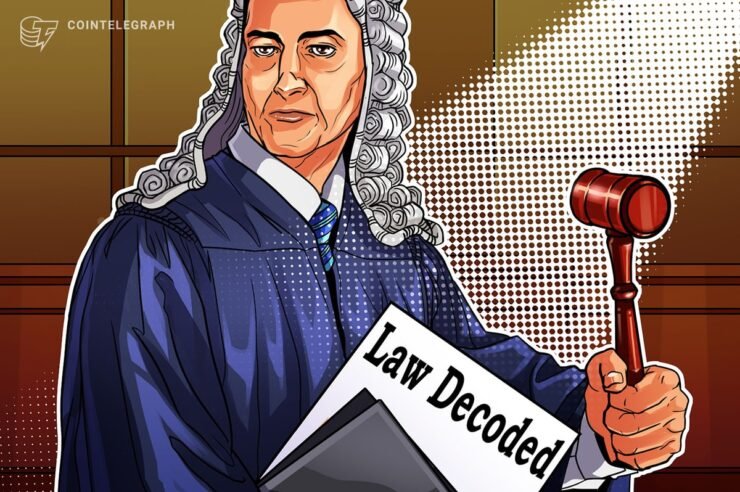
Two lawmakers in one week weighed in against the possibility of a United States central bank digital currency (CBDC). Florida Governor Ron DeSantis — expected by many to throw his hat into the ring for the 2024 U.S. presidential race — has called for a ban on a digital dollar in the state. DeSantis spoke out against the Federal Reserve issuing and controlling a CBDC, claiming the initiative would grant “more power” to the government.
Texas Senator Ted Cruz went even further, introducing a bill to block the Fed from launching a “direct-to-consumer” central bank digital currency. Cruz stated it’s “more important than ever” to ensure U.S. policy on digital currencies protects “financial privacy, maintains the dollar’s dominance and cultivates innovation.” The anti-CBDC bill is a second attempt by Senators Cruz, Braun and Grassley, who introduced a similar bill on March 30, 2022, to prohibit the Fed from issuing a CBDC directly to individuals.
Representative Tom Emmer introduced another anti-CBDC bill in February. The bill could prohibit the Fed from issuing a digital dollar directly to anyone, bar the central bank from implementing monetary policy based on a CBDC, and require transparency for projects related to a digital dollar. It’s also presented as an apparent effort to protect Americans’ right to financial privacy.
G7 to collaborate on tighter crypto regulation
The next G7 meeting in May might bring a push from seven of the world’s advanced economies for stricter regulations on cryptocurrencies globally. Together, leaders from Japan, the United States, the United Kingdom, Canada, France, Germany and the European Union will outline a cooperative strategy to increase crypto transparency and enhance consumer protections, as well as address potential risks to the global financial system, officials told journalists.
Recommendations on the regulation, supervision and oversight of global stablecoins, crypto assets activities and markets are scheduled to be delivered by July and September 2023. It is unclear, however, what the overall tone of the recommendations will be.
IRS calls for public feedback on taxing NFTs
The U.S. Internal Revenue Service (IRS) said it plans to release guidance on having nonfungible tokens (NFTs) treated as collectibles under the U.S. tax code. According to the government body, collectibles under U.S. tax law “do not have as advantageous capital-gains tax treatment as other capital assets,” seemingly referring to how crypto assets are currently taxed in the country. Under the U.S. tax code, selling collectibles such as coins or artwork is subject to a maximum capital gains tax rate of 28%. The proposed IRS guidance could apply the same standard to an NFT certifying ownership of a coin, piece of art or similar collectible.
Texas lawmaker introduces resolution to protect Bitcoin miners
Cody Harris, a member of the Texas House of Representatives, has introduced a resolution to have the legislature say the “Bitcoin economy is welcome” in the state. Harris encourages Texas lawmakers to “express support for protecting individuals who code or develop on the Bitcoin network,” as well as miners and Bitcoiners operating in the Lone Star State. House Concurrent Resolution 89, if adopted, would largely not apply to Texas’ laws and regulations but instead express a certain sentiment among lawmakers.



Comments (No)